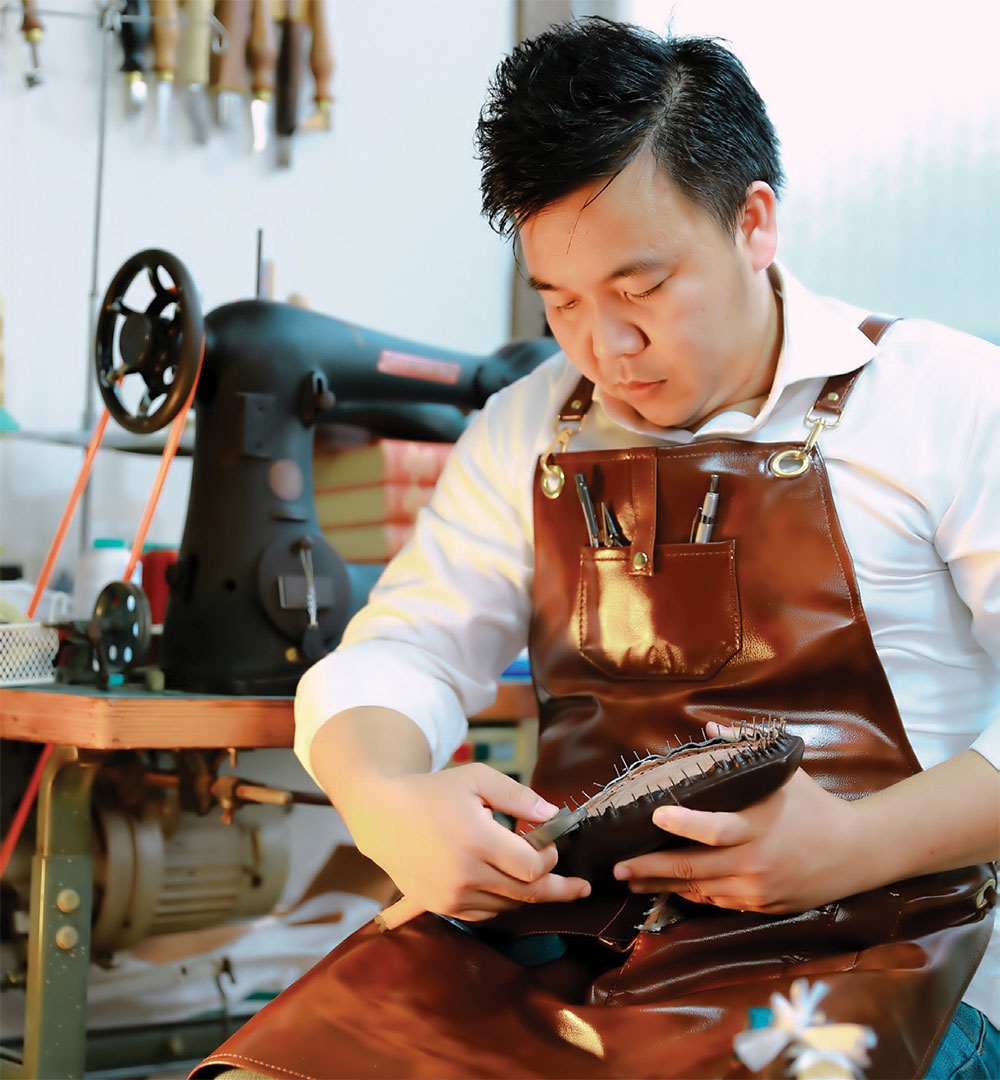At the age of 36, Lee Trung still aspires to start a business. The area he wants to develop is not related to IT but to make bespoke shoes, a craft that is quite famous in Japan but still unfamiliar to most Vietnamese.
Bespoke shoes are a symbol of luxury because the price of each pair can range from $2,500 to $10,000 and it takes an average of 6-12 months to complete.
 |
“Like other shoemakers in Japan, I opened a workshop at home and do all the manual work at the request of the customer,” Lee Trung said.
He has known about bespoke shoemaking since moving to Tokyo to work in 2013. A friend introduced him to order shoes at a famous shoemaker factory, and the meticulous beauty of bespoke shoes gradually blossomed his love for this job.
“I love handmade work because I find it interesting, so I decided to follow the profession,” he said.
Trung then followed a famous shoemaker in Tokyo to learn the craft. The learning process requires high concentration, patience, and meticulousness because to be able to create a true bespoke shoe, the craftsman must perform from 200-300 complex stages.
Because programming takes up most of his time, Trung can only practice in the evenings and weekends. He admits that passion has helped relieve stress and stimulated him to be more creative.
Trung took up to a year to perfect the first pair of shoes, but regular practice has led the young artist to gradually shorten the production time to six months.
It was only after five years of training, when he owned a shoe factory with his own brand called Ichigo Ichie Shoemaker, that he began to share his creations with groups specialising in bespoke shoes and received compliments from industry players from around the world.
Trung has now made 30 pairs of shoes, mainly orders from middle-aged customers from Europe who have good financial ability, but who always demand high quality.
“The number of orders is increasing day by day, and some customers have to wait 3-5 years to receive shoes,” he said. “The reason they wait patiently is that every handmade bespoke pair is a work of art, and there is only one model in the world.”
Modern consumers’ love and appreciation for handmade products has opened up attractive development opportunities for shoemakers, including Trung. He plans to return to Vietnam, a potential new market to build his own bespoke shoe brand and train students to develop more ready-to-wear lines, serving customers with moderate to good income.
“Work as a programmer is still my main source of income right now, much higher than my shoemaking salary. However, I want to build my own shoe brand, and at the same time I also wish to bring this craft back to Vietnam so that more Vietnamese people can wear high-quality leather shoes,” he said.
